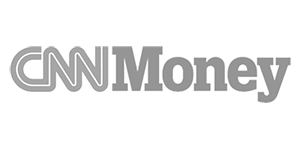Nuveen: 2021 Outlook

Viewpoints from the Global Investment Committee
Macro risks associated with the devastating coronavirus have loomed over global markets and economies for nearly a year, and will continue for at least several months. But beyond this dark tunnel, we see a more normalized environment driven by fundamentals. Nuveen’s Global Investment Committee offers ways to navigate through the near-term challenges and position for the bright opportunities on the other side.
Views from the TIAA General Account
For years, investors of all stripes, from the world’s largest institutions to individuals, have focused on the risk of persistently low interest rates and the struggle to achieve income. But there’s another potential risk on the horizon — with similarly damaging effects — that also demands focus: prospects for rising inflation and the erosion of purchasing power.
Inflation risks have been a point of discussion among investors for some time, yet they haven’t materialized. But it does feel different now: Nuveen’s Global Investment Committee believes that the extraordinarily easy monetary policy and expansive fiscal policy we have seen over the past year (and more spending to come) will likely increase inflation risks. We don’t expect inflation to rise tomorrow. But when virtually every global policymaker is using every tool available (with more force than during the global financial crisis) to accelerate economic activity, the probability of significant inflation risk is rising.
Inflation affects all investors, but the problem can be particularly acute for the TIAA General Account (GA) and other institutions that are ultimately responsible for helping people fund their retirement. After all, inflation erodes the purchasing power of the income we pay to our participants. Because the GA is part of a U.S.-based insurance company, regulations require us to hold significant amounts of fixed income investments — and bonds are an asset class that can be hurt by rising inflation.
This leads us to the issue of portfolio construction in the current environment. Every investor has their particular risk tolerances, restrictions and goals, but we all also have our strengths. Investors should play to those strengths to manage their risks, including inflation. For the GA, two of our main strengths are our capital strength and ample current liquidity. Regular stress tests ensure our portfolio has more than enough liquidity to meet our spending needs, which allows us to invest a significant percentage of our overall assets into more illiquid private investments such as real estate and a variety of real assets including agriculture, timber, farmland and infrastructure. These investments have the dual advantage of providing solid yields in today’s low inflation environment while also offering the potential of a natural inflation hedge.
Other investors will of course have varying strengths and risk tolerances. Traditional pension plans or individuals with less investment restrictions and higher risk tolerances often consider public equities or commodities to manage their inflation risks. Large institutional investors willing to invest globally could also benefit from the various rate differentials created by differing inflation expectations between countries around the world.
One final takeaway: It’s important to avoid positioning for any one outcome, but rather construct a resilient portfolio designed for all economic scenarios. Sometimes that might mean sacrificing some returns to manage different risks, but ultimately it means playing to your strengths and taking on the risks you can afford in order to meet your return objectives.
As part of his participation in Nuveen’s Global Investment Committee, Nick Liolis offers his perspective as an institutional investor and asset allocator. Neither Nick nor any other member of the TIAA General Account team are involved in portfolio management decisions for any third-party Nuveen strategies.
Source: https://www.nuveen.com/en-us/insights/investment-outlook/annual-2021-outlook














